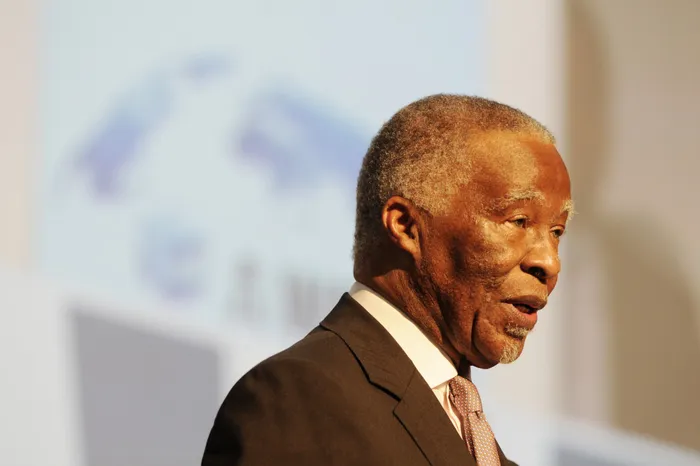Thabo Mbeki calls for a reassessment of South Africa's national interests in a multipolar world

Navigating global power dynamics: Former President Thabo Mbeki's insights on US foreign policy
Image: Picture: Armand Hough/Independent
Former South African President Thabo Mbeki has called on the nation to critically assess and articulate its national interests in an increasingly multipolar world and the evolving foreign policy of the United States.
In an interview with Dr Mbuyiseni Ndlozi on Power FM on Monday, Mbeki reflected on recent diplomatic tensions, including the controversial meeting between President Cyril Ramaphosa and former US President Donald Trump—an encounter many observers described as a diplomatic misstep.
Rubio stated that “after the Soviet Union’s collapse, the global political landscape changed,” a shift Mbeki sees as emblematic of US foreign policy.
“The norm now should be a multipolar world where countries pursue their interests,” Mbeki emphasised.
"When Trump spoke of ‘Making America Great Again,’ he wasn’t advocating isolation. He asserted America’s right to define and pursue its interests—controlling resources, influencing regions, shaping global institutions—regardless of others’ opinions.”
Power Politics in a Multipolar World
Mbeki highlighted that this focus on self-interest isn’t exclusive to Trump’s administration.
“They may see strategic value in places like Greenland or Panama and act accordingly.”
This, he explained, is a defining feature of contemporary international relations.
“The guiding principle now is what benefits the US, not respect or equality. That’s how they see the world.”
Implications for South Africa and Africa
Mbeki warned that Africa must understand this global shift to safeguard its interests.
“We need to articulate and defend our interests instead of passively accepting external dictates.”
He touched on recent diplomatic tensions, notably South Africa’s support for Palestine.
“Our stance is rooted in principles of justice and solidarity,” he said. “But we must also recognise that US interests in the Middle East often conflict with ours.”
Dependency and the Role of US Diplomacy
“That scene—staged videos, prepared images—showed how the US believes it has the right to lecture us,” Ndlozi remarked. “This is a clear example of structural dependency and diminishing our dignity.”
He argued that what is often framed as “respect” is actually a form of dominance.
“It’s not about mutual respect; it’s about control,” he said. “Our relationship with global powers has become asymmetrical—rooted in dependence, not equality.”
The Changing Dynamics of US-South Africa Relations
Ndlozi observed that US-South Africa relations have worsened under the current administration.
“Now, the US acts as if it’s entitled to dictate to us, regardless of our sovereignty.”
He reflected on the diplomatic approach of previous US presidents.
“Visits by Bush or Obama, even amid disagreements, maintained mutual respect. Today’s aggressive posture is deeply concerning,” Ndlozi noted.
Moving Forward: A Call for Vigilance
Mbeki concluded by emphasising that the world is shifting away from unipolar dominance. He urged African nations to be proactive by defining their interests and standing firm.
thabo.makwakwa@inl.co.za
IOL Politics
Related Topics:
